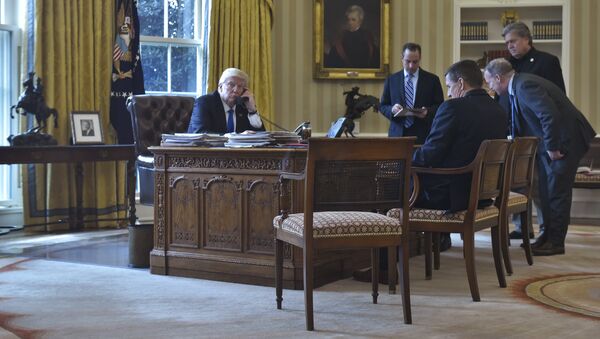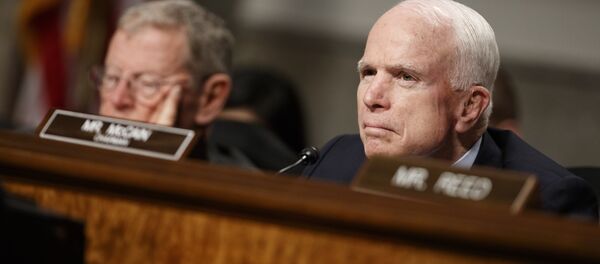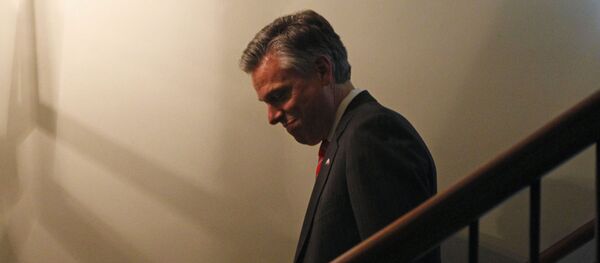"President Donald Trump’s election was greeted with elation in Russia and trepidation in Europe because of his public overtures to Russian President Vladimir Putin. But the six weeks since the start of the Trump presidency have begun to reverse the emotional tide," reads its recent article.
"Throughout his campaign and presidential transition, Mr. Trump struck a conciliatory line toward Russia and spoke critically of the North Atlantic Treaty Organization and other alliances," it says.
"Since taking office, however, he has selected a roster of top aides who have advanced a hard line toward the Kremlin, initially seeming at odds with the president. Mr. Trump himself has spoken in more supportive terms about NATO, including in his address to Congress last week," it further explains.
The shift has taken place during a period when President Trump’s administration has been buffeted by controversy over undisclosed contacts between top associates and Russia.
Commenting on the article, Evgeny Minchenko, director of the International Institute for Political Analysis told Sputnik that the outlet seems to be guilty of "wishful thinking," as his basic foreign policy line has not undergone any transformation since his presidential campaign.
He further elaborated that while implementing these goals the administration might make certain agreements, including with its former opponents.
"This position has not changed however the administration might resort to different tactics," the expert said.
Hence, Minchenko said, Trump's voiced desire to "strike a deal" with Russia has not changed. He has not yet defined the parameters of this deal, he explained.
The president however is delivering on his foreign policy priorities which are the US refusal from active expansionism abroad and financing of large international projects of "unclear efficiency."
It is focusing on "hotter spots" such as: the Islamic State, Iran and North Korea; Strengthening the US military potential, and an increase of its defense spending. And finally, reconsideration of the US' role as an active and permanent NATO donor, he said.
However the reformatting of Russian-US relations has not been a top priority for the US president, but one of many aims set before his administration for future, which he has not yet got down to dealing with.




